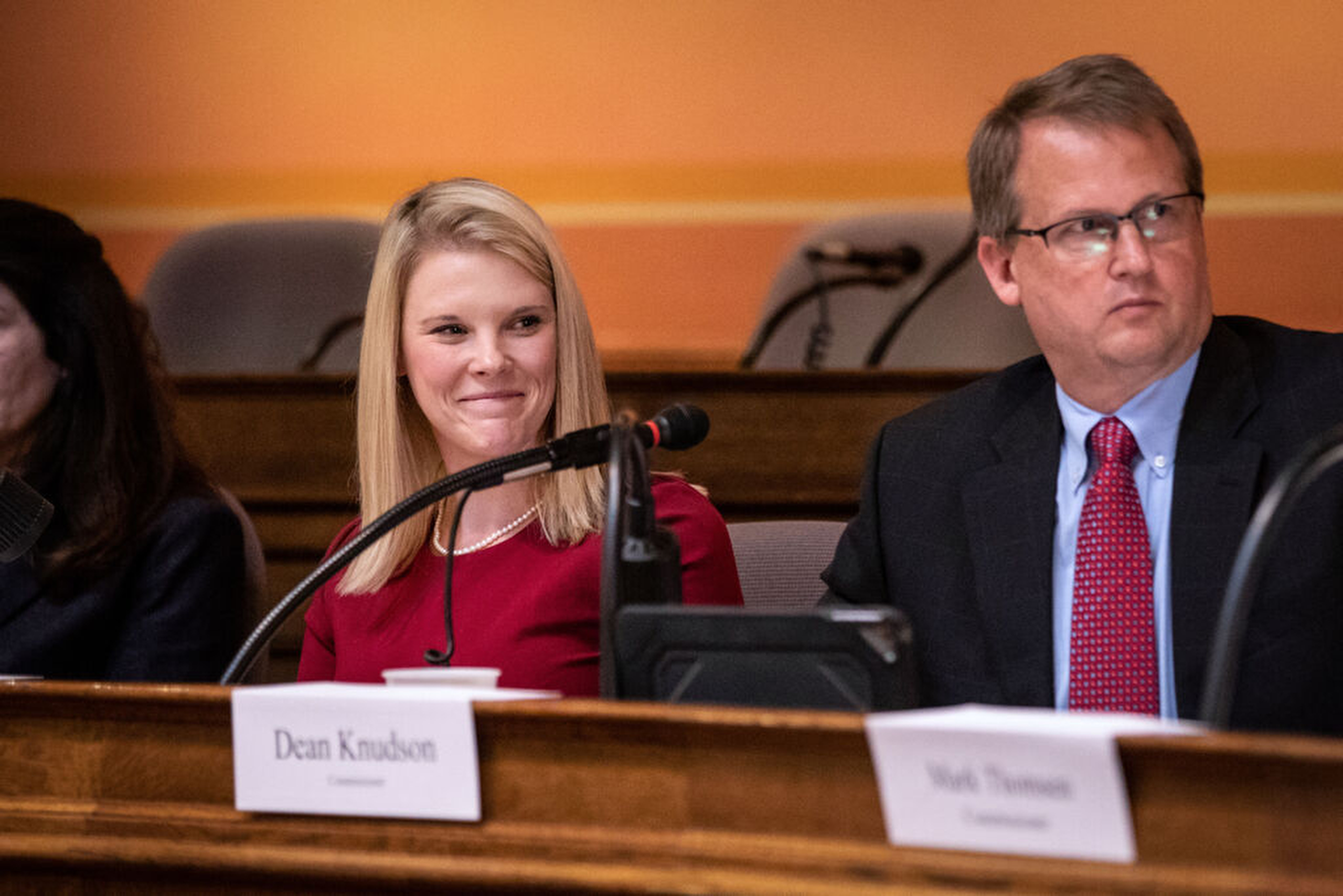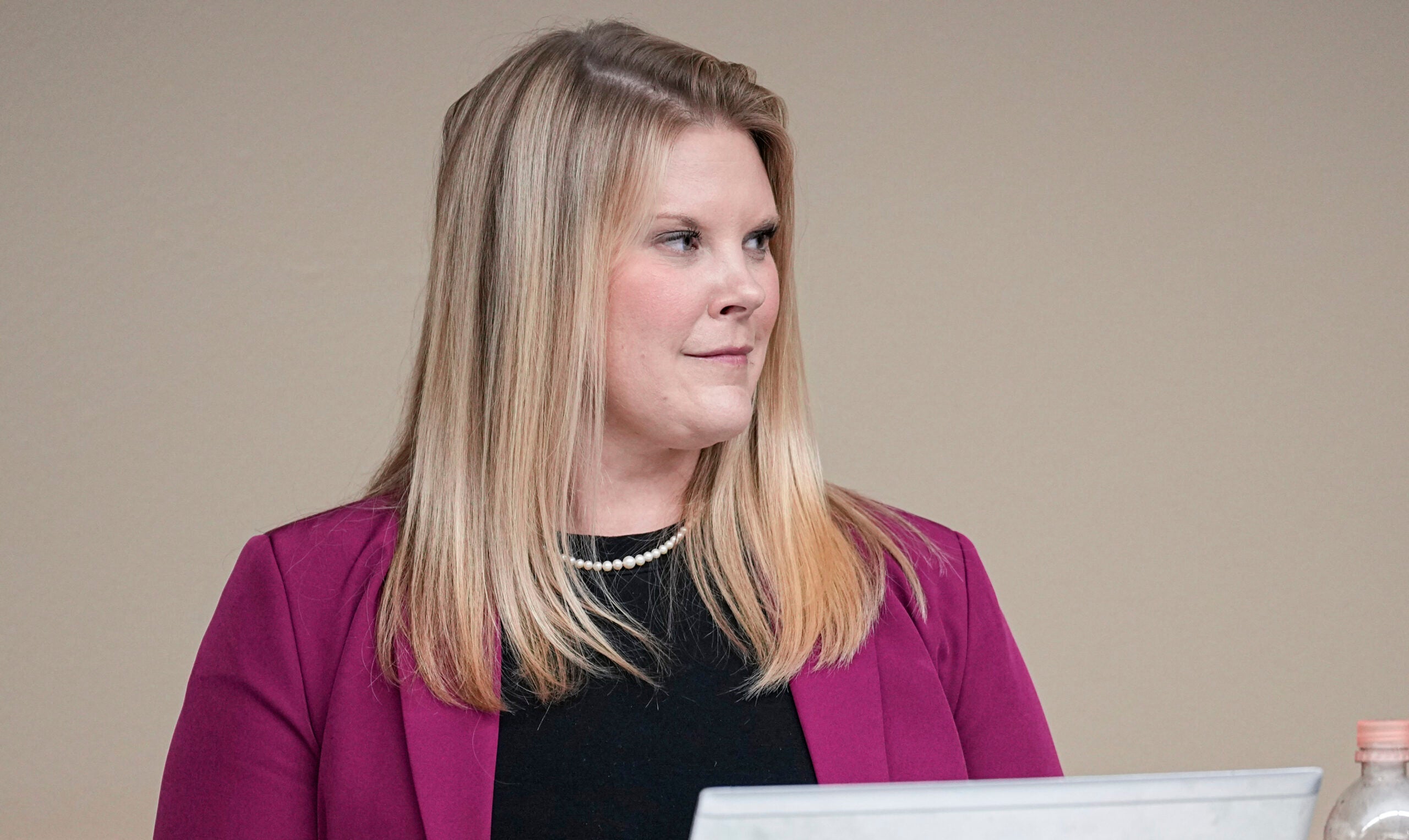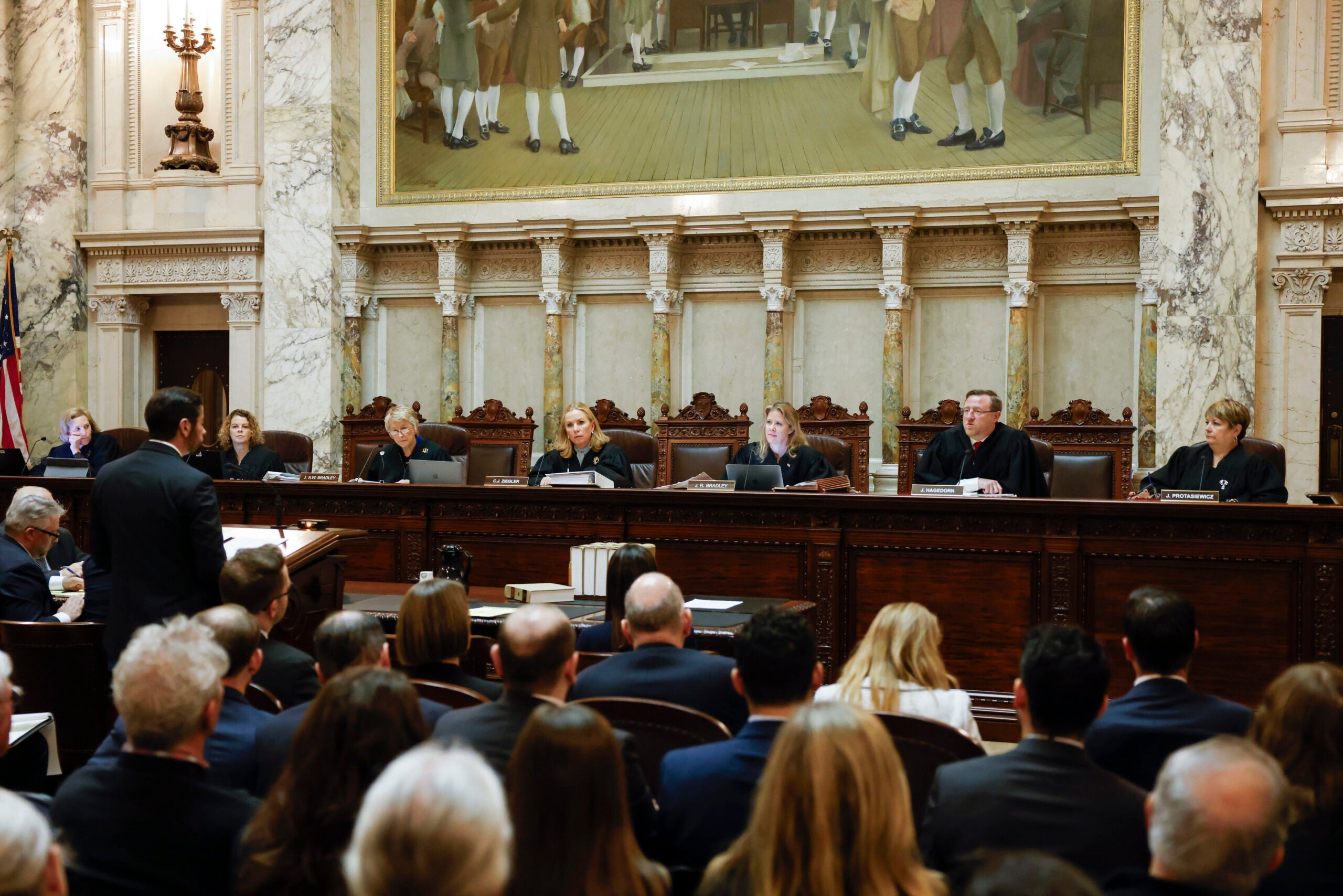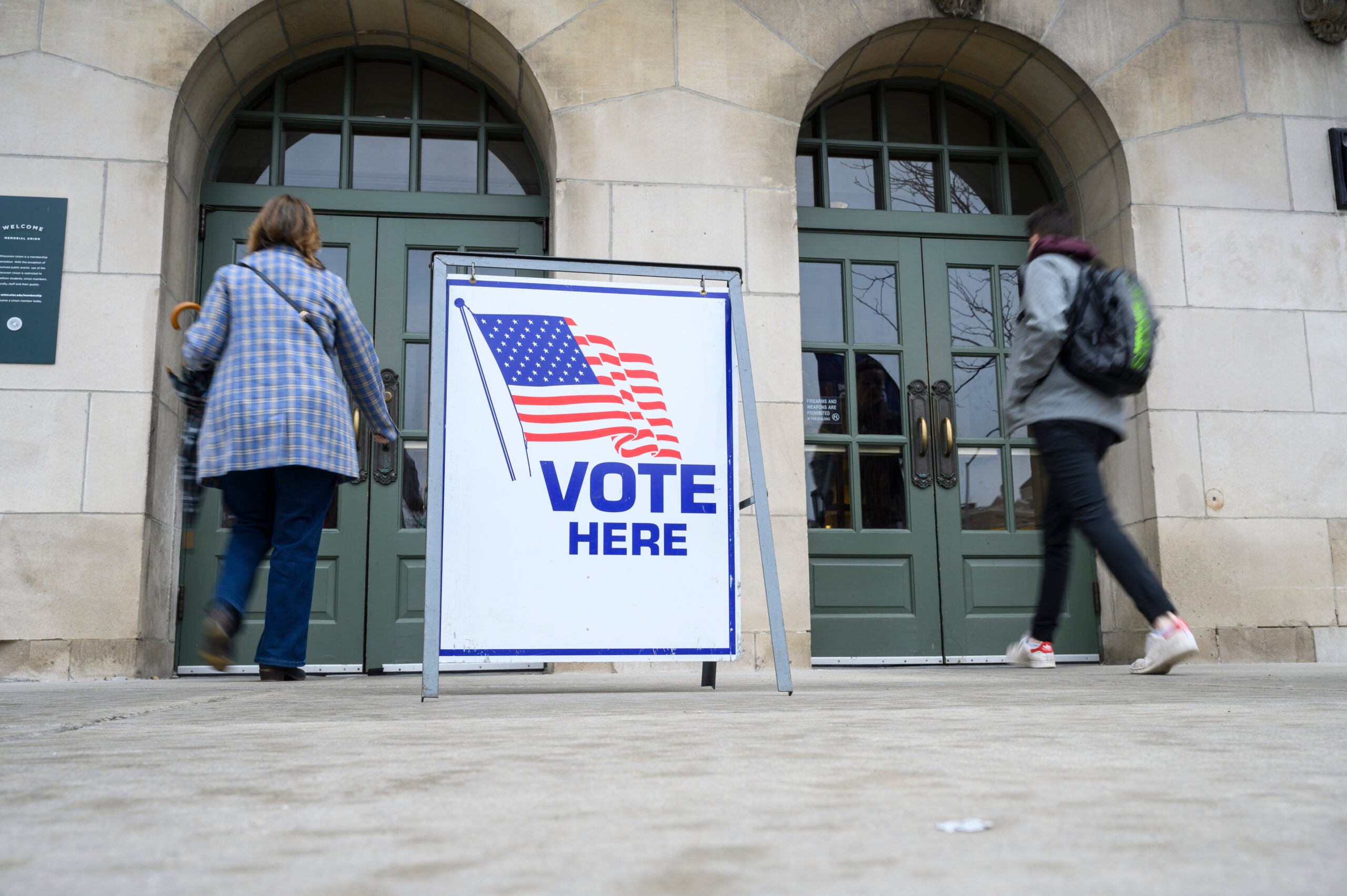The question of who will oversee Wisconsin elections during the 2024 election cycle went unresolved Tuesday after the Wisconsin Elections Commission deadlocked over whether to reappoint Meagan Wolfe, the existing administrator.
The split vote leaves Wolfe in the post for now, but creates ongoing uncertainty over who will be in charge of elections in a state where presidential contests are often decided by just a few thousand votes. Like many contentious issues involving Wisconsin elections, this one could be decided in court.
“I’m very concerned that now we are leaving the job of the administrator in the hands of a circuit court judge or a court of appeals or the Supreme Court, and her position could be in jeopardy on a moment’s notice,” said Don Millis, a Republican appointee who chairs the Wisconsin Elections Commission. “I don’t think it’s good for the administration of elections in Wisconsin.”
Stay informed on the latest news
Sign up for WPR’s email newsletter.
All three Republican appointees on the bipartisan body voted to reappoint Wolfe, while the three Democratic appointees abstained, arguing that as long as Wolfe remained in the job, they had no legal authority to appoint or reappoint anyone for the role.
At issue is an unprecedented legal question about how to fill vacant state government appointments following a Wisconsin Supreme Court ruling last year involving an appointee of former Republican Gov. Scott Walker who declined to leave his job. In that case, the court’s 4-3 conservative majority ruled that a person who does not leave their appointed role can stay there because there’s no vacancy to be filled. That could open the door to Wolfe remaining in the administrator’s job, even after her term ends on June 30.
“We’re in uncharted territory, but it is my understanding that based on the Commission’s actions today that I would be in a holdover position come July 1,” Wolfe told reporters after the Commission’s meeting Tuesday evening.
The Democratic members of the Commission unanimously expressed support for the work that Wolfe has done, while Republicans argued that a swirl of conspiracy theories that have surrounded Wolfe since the 2020 election have undermined public trust.
Nevertheless, it was two Republican appointees who moved to reappoint Wolfe. Bob Spindell, who posed as a false elector for former President Donald Trump following President Joe Biden’s victory in Wisconsin, said he did not support Wolfe because she “has not achieved or maintained the confidence of Republicans and conservatives.”
But Spindell moved to reappoint her “so that this matter may be resolved rather than festering through court cases for the next couple of years, which will undoubtedly hurt the election process in Wisconsin within this period of time,” he said.
Had the Commission moved Wolfe’s nomination forward, it would have been sent to the state Senate for a confirmation vote, where Republicans hold a lopsided majority. While Wolfe was unanimously confirmed by the Senate in 2019, some lawmakers have said that they will not support her this time around, and Senate Majority Leader Devin LeMahieu, R-Oostburg, has said that he does not think Wolfe could get the required 17 votes in the Senate for confirmation.
If Senators vote against confirming Wolfe, they would effectively fire her. The Democrats who abstained from voting Tuesday said it was not appropriate to move an appointment to the Senate while Wolfe remains in the position.
“She is the administrator. And I don’t think we should create the illusion that we think that the Senate has the ability to confirm or not confirm, because there is no vacancy,” said Mark Thomsen, a Democratic appointee to the Commission.
Wolfe said the uncertainty puts Wisconsin on an unstable path less than a year out from next April’s presidential primary elections.
“We’re out of time. And if I’m being frank, the Commission’s vote really should have happened months ago, so that we would be dealing with these questions and have a better, clearer path forward,” she said. “But here we are.”
A legal battle could hinge on the case of Republican appointee Fred Prehn
Last year, the Wisconsin Supreme Court ruled that Fred Prehn, a Natural Resources Board chair and appointee of Walker, could remain in place after the expiration of his term as long as the Senate did not hold a hearing on Gov. Tony Evers’ nominated replacement.
The precedent from that case has not been applied to the Elections Commission before, but the Democratic members argued it applies here and that a vacancy is formed only by acts like resignation or death.
“We don’t have a vacancy,” said Democratic Commissioner Ann Jacobs. “Without a vacancy, we have an administrator, and that administrator continues.”
Millis, the body’s chair, praised Wolfe’s performance in the role and said that her work has been unfairly maligned by people that he described as “grifters.” But, he argued, Wolfe’s reputation has been sufficiently tainted that keeping her in place would invite further conspiracy theories about Wisconsin’s elections.
“What’s concerning about these conspiracy theorists is that they’re willing to trash the reputations of anyone who’s interested in trying to administer elections fairly,” Millis said. “We’re only going to give these grifters more ammunition if we have a holdover administrator.”
Wolfe has been a target of conspiracy theories and criticism from some Republicans since the dramatic 2020 presidential election cycle. Numerous reviews of the election, including a nonpartisan audit, found no evidence of widespread fraud, and Biden’s victory over Trump was upheld by multiple state and federal courts.
This is not the first time the administrator of the Wisconsin Elections Commission has come under scrutiny from Republicans. In 2018, Republican senators voted to fire the agency’s former leader, Mike Haas, despite unanimous support from the Commission.
Wisconsin Public Radio, © Copyright 2025, Board of Regents of the University of Wisconsin System and Wisconsin Educational Communications Board.



